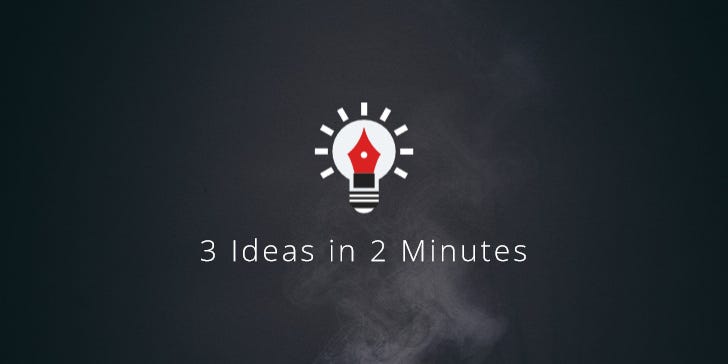#179: Consciousness Tradeoff, Rosy Retrospection & the Centipede's Dilemma
3 Ideas in 2 Minutes on Reflecting on the Past
I. Consciousness Tradeoff
At the end of each year, we’re invited to reflect on the past. English philosopher Alan Watts explains the human condition and why that is often so difficult. Consciousness comes with a tradeoff:
This, then, is the human problem: there is a price to be paid for every increase in consciousness. We cannot be more sensitive to pleasure without being more sensitive to pain. By remembering the past we can plan for the future. But the ability to plan for the future is offset by the "ability" to dread pain and to fear of the unknown.
Furthermore, the growth of an acute sense of the past and future gives us a corresponding dim sense of the present. In other words, we seem to reach a point where the advantages of being conscious are outweighed by its disadvantages, where extreme sensitivity makes us unadaptable.
—Alan Watts, The Wisdom of Insecurity
II. Rosy Retrospection
Rosy Retrospection is a cognitive bias that causes people to recall past events as more positive than they truly were. It affects personal reflection by shaping our perceptions of past experiences and influencing our current attitudes and decisions.
As the emotional intensity of negative experiences fades, we idealise the past by remembering more of the positive. We alter the past so it aligns with our preferred self-image. We reinterpret our experiences and weave them into a coherent life narrative.
We get nostalgic about the time we grew up, recall our previous jobs more fondly than they actually were and completely forget how we got mugged during that one trip to South America. All we remember is that delicious beef in Buenos Aires and the stunningness of Patagonia.
III. Centipede's Dilemma
The Centipede's Dilemma is a cautionary tale about overthinking and the pitfalls of having gained unconscious competence. It goes back to a poem by Marion Quinlan Davis:
The centipede was happy — quite!
Until the toad, in fun,
Said, pray, which leg moves after which?
This raised her doubts to such a pitch
She fell distracted in the ditch,
Not knowing how to run.
Ask a centipede how it moves its legs and it will stumble. Because too much reflection and overanalysing can be counterproductive. Or as philosopher Karl Popper put it:
If we have learnt certain movements so that they have sunk below the level of conscious control, then if we try to follow them consciously we very often interfere with them so badly that we stop them.
—Karl Popper
In other words, think less, act more.
See you again in January. Merry Christmas! 🎄🐘
Have a great week,
Chris
themindcollection.com


